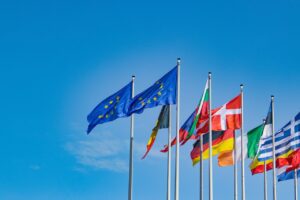 On October 15, 2024, the Grand Board of Appeal published its reasoned opinion on the questions referred by the Executive Director of EUIPO (Referral of February 22, 2024, already commented here) in case in case R 497/2024-G regarding EUIPO’s practice on conversion.
On October 15, 2024, the Grand Board of Appeal published its reasoned opinion on the questions referred by the Executive Director of EUIPO (Referral of February 22, 2024, already commented here) in case in case R 497/2024-G regarding EUIPO’s practice on conversion.
The case deserves a quick recap.
In ‘NIGHTWATCH’ (R 1241/2020-4 of 26/09/2022 (already discussed here), the BOA found illogical EUIPO’s approach which conditioned conversion on the filing of an appeal against a refusal of an application in ex parte (and inter partes cases). This decision naturally stirred great attention, and the EUIPO’s Executive Director, using for the first time the power to refer cases under art. Article 157(4)(l) EUTMR, asked the Grand Board of Appeal to weigh in since the BOA had taken an approach that differed to the long-standing practice in the Office’s Guidelines concerning conversion.
The Grand Board held that the rules on conversion and on non-final refusal decisions leave little room for interpretation and is quite clear that a conversion request submitted after the withdrawal of the EU trademark application (under Article 139(5) EUTMR), following a decision that has not yet become final, cannot be refused under Article 139(2)(b) EUTMR. This article can only refer to final decisions, as correctly held in Nightwatch and in the observations filed as Amicus Curiae by APRM, ECTA, INTA, MARQUES and the Benelux IP Office.
The reasoning of the Grand Board is clear: a decision becomes final if no appeal is filed against that decision. A decision does not become final and does not produce effects if, before the appeal period expires, an event that renders the decision inoperative occurs (e.g., the withdrawal of the trademark application to which the decision refers). A decision that does not become final produces no effects (either operational or substantive). The only “operational” effect that can be envisage is that the decision remains in the EUIPO’s public database and it can be read by anyone.
The Grand Board cited the case laws of the Court of Justice, in which the court ruled that, for instance, if a revocation action for non-use is withdrawn before the EUIPO decision and the Board of Appeal (BOA) decision become final, both decisions become inoperative due to the combined provisions of Articles 66(1) EUTMR and 71(3) EUTMR.
As a result, the prohibition provided by Article 139(2)(b) is not applicable in cases where the EU trademark application for which conversion is requested has been voluntarily withdrawn. The consequence of withdrawing a trademark application is that the proceeding becomes moot, and the decision on that proceeding will never produce effects (operational or substantive). There is no legal basis for requiring the filing of an appeal, as the decision’s effects are suspended until the decision becomes final, whether an appeal is filed or not. The same is valid if the decision in question is the one of the BOA or of the General Court. If a trademark application is withdrawn during the appeal period, the decision becomes inoperative at any stage.
Finally, the Grand Board clarifies that a request for the conversion of a refused EUTM application cannot be seen as an attempt to circumvent the limitations of Article 139(2)(b) EUTMR, as national trademark systems coexist with the EU system, and there is no supremacy of one system over the other.
While we have now to await for EUIPO to amend its Guidelines, what changes in practice will this decision bring?
Basically, it will now be easier, faster and less expensive to convert a refused application, as there will be no need to file first an appeal. But it will also be easier to try to rebut EUIPO’s provisional refusals on absolute grounds. Before Nightwatch, after a provisional refusal the applicant had to decide whether to reply (and risk a final refusal) or to withdraw immediately and convert. The reason was that if one replied and EUIPO confirmed the refusal then it was no longer possible to withdraw and convert but it was necessary to file an appeal, and pay the fee to then withdraw and convert. Now, one might as well try to respond because anyway it will always be possible, if EUIPO confirms the refusal, to withdraw and convert.
Also, it changes things in opposition proceedings. Before, if the opposing mark was a EUTM, conversion was impossible, (always unless by filing an appeal and then withdrawing the application). Going forward, if the applicant loses the opposition and does not want to appeal (let’s say the reason was confusion in a single member state), it will be possible in the following two months to withdraw the application and convert in all countries (even in the one where according to EUIPO there was confusion). It will be interesting to see if EUIPO users will take advantage of these new opportunities.
_____________________________
To make sure you do not miss out on regular updates from the Kluwer Trademark Blog, please subscribe here.


